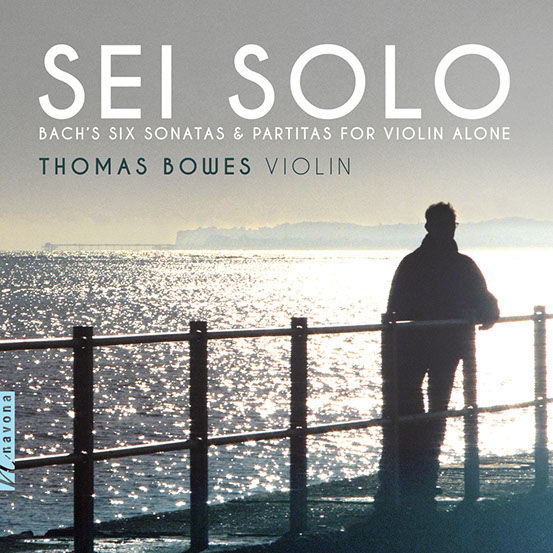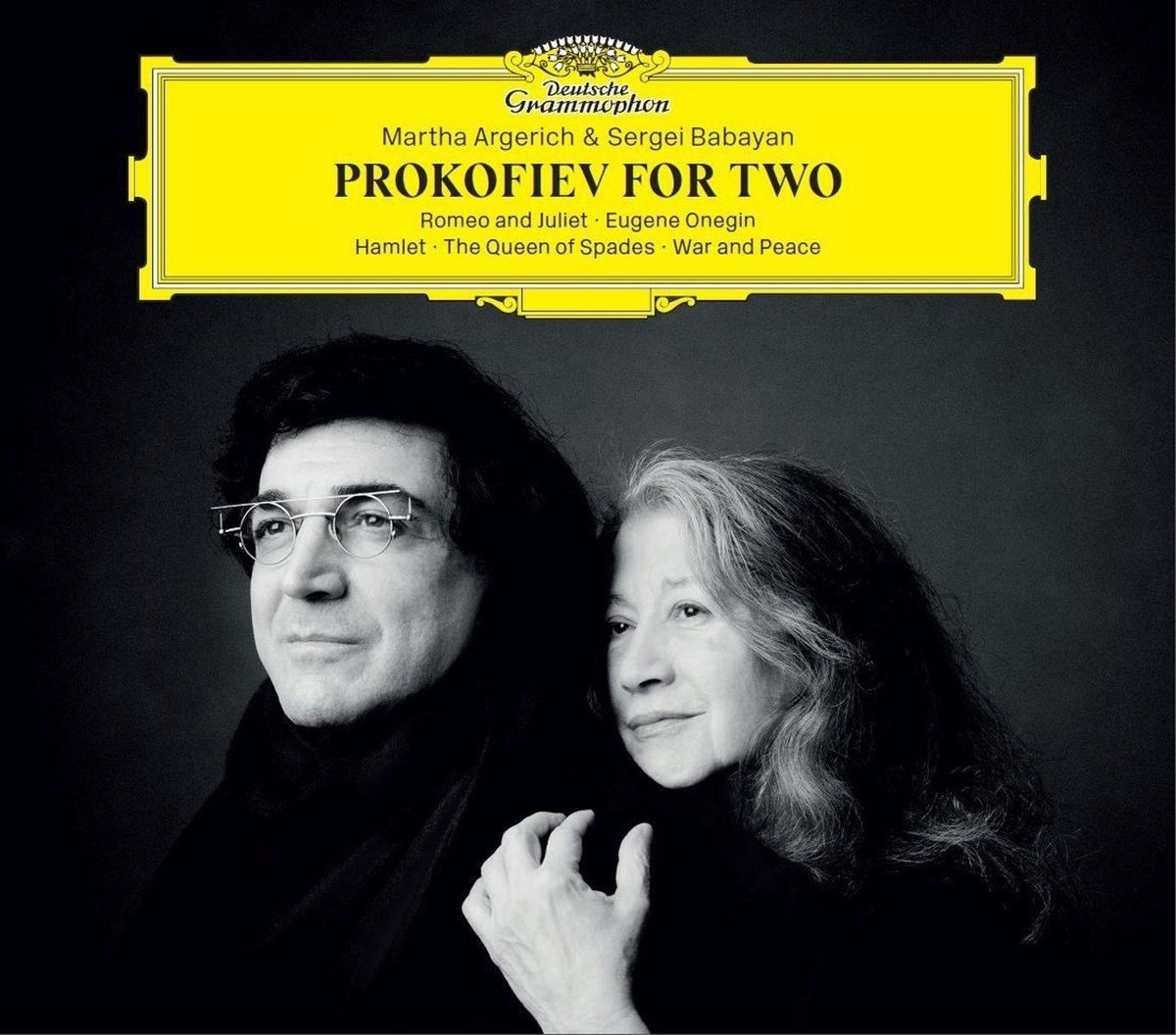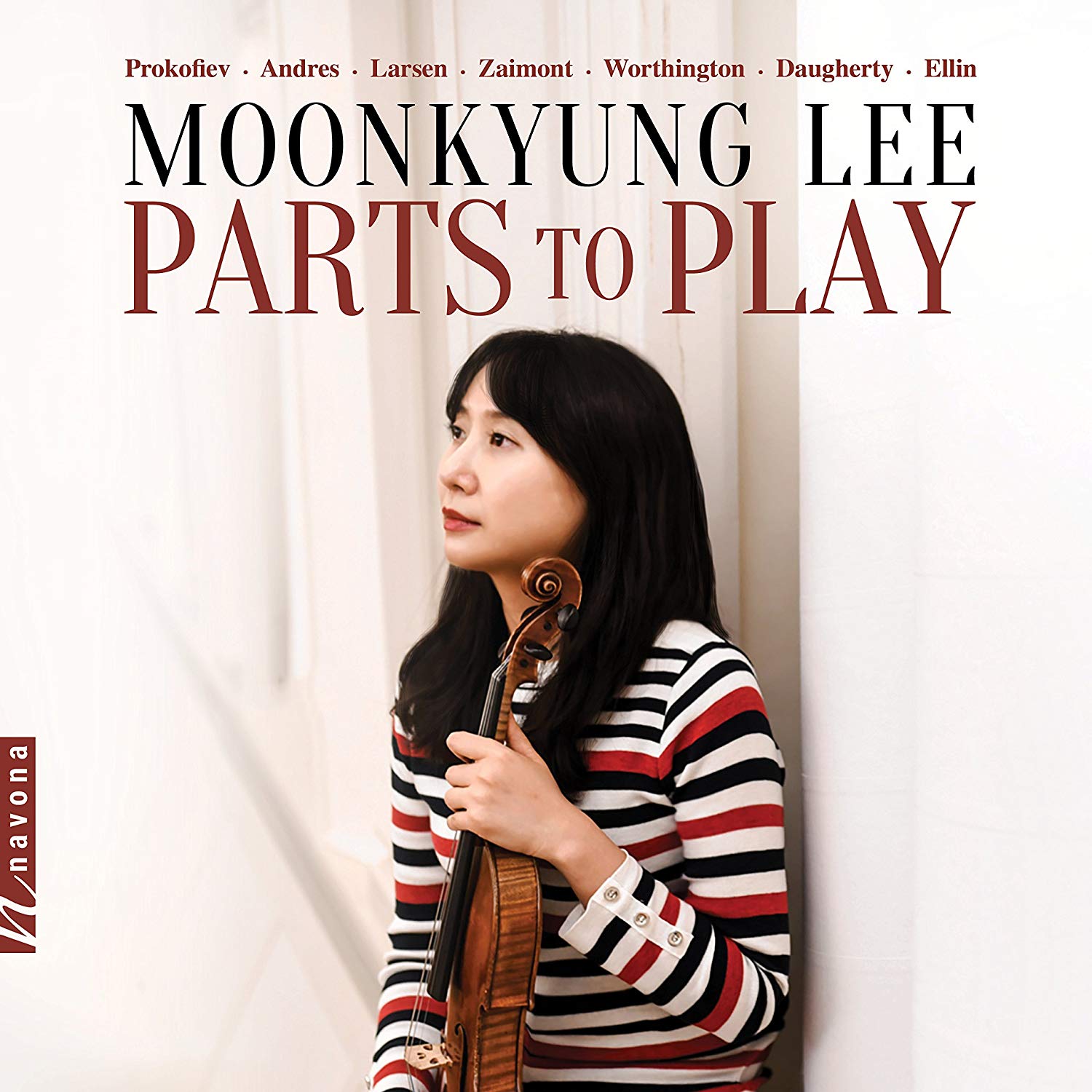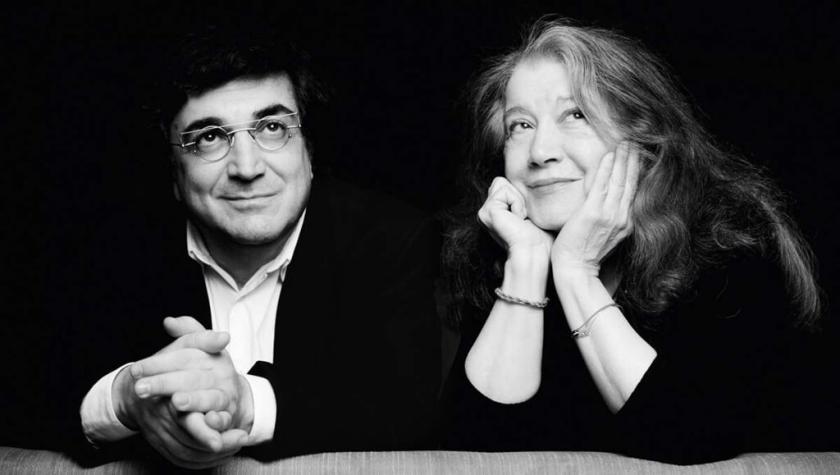 Sei Solo: Bach's Six Sonatas and Partitas for Violin Alone Thomas Bowes (Navona)
Sei Solo: Bach's Six Sonatas and Partitas for Violin Alone Thomas Bowes (Navona)
Have a look at violinist Thomas Bowes’ IMDB page. You’ve almost certainly heard him play on a giddying range of film soundtracks, and, given the frenetic pace of studio session life, you can understand him wanting a bit of peace, a few hours of "me" time. The results are collected here: Bach’s complete solo violin output in performances of heartfelt intelligence. These recordings grew from a Bach Pilgrimage which Bowes first made in 2013, travelling across the UK and playing the sonatas and partitas in churches great and small, the funds raised going towards the buildings’ upkeep. Over three years, six days worth of sessions were secured at Abbey Road, the process involved explained with winning candour by producer Stephen Frost. Bowes views Bach’s punning subtitle “Sei Solo” as a sign that these pieces form a sequence of “six alones… a meditation on that least sociable state of the human condition.” Wise words, but a little misleading: Bowes’ playing is never chilly or cold. Intense, yes – this is a set with which you'd happily retreat to a darkened room for a few hours. That's what I did, anyway, and emerged thoroughly invigorated. Vibrato is applied sparingly, making it all the more effective. Introspective numbers like the “Sarabande” of Partita No 1 are exquisitely played, and the same work’s “Tempo di borea” has an exhilarating snap.
Inevitably one turns the vast chaconne which closes Partita No. 2. Bowes’ reading feels very much like a single take, and there's a heart-stopping moment eight or so minutes in when his tone becomes so hushed it almost disappears. It's magical, breath-catching stuff. Sonata No. 3 opens in extraordinary fashion, the music jerking itself into life. Partita No. 3’s over-familiar “Preludio” is luminous in Bowes’ hands. A glorious set – miss at your peril.
 Prokofiev for Two: Martha Argerich and Sergei Babayan play Prokofiev (DG)
Prokofiev for Two: Martha Argerich and Sergei Babayan play Prokofiev (DG)
Start with Sergei Babayan’s two-piano transcription of numbers from Prokofiev's Romeo and Juliet. That he's teamed up with Martha Argerich is enticing enough, but the arrangement itself is extraordinary, all the better for the liberties which Babayan takes with the original ballet score. There's a neatly-constructed prelude using material from several sections which segues straight into “Dance of the Knights”. Much of what follows will be unfamiliar if you've only heard the orchestral suites, like the “Gavotte” recycled from Prokofiev's Classical Symphony. Like the beguiling “Morning Serenade” and “Dance with Mandolins”, both of which now sound thrillingly pianistic, despite lacking mandolins. The playing sizzles. Sample the pair’s take on “Juliet as a Young Girl”, impetuous and brimming with charm, despite the ludicrously fast tempi. The rhythmic coordination defies belief, though just when you're suspecting that this disc is little more than flashy fluff, you hit “Romeo and Juliet Before Departure”. It swoons, soars and weeps as only the best orchestral performances do, before Babayan closes the suite with Tybalt’s death. Ninety seconds in and you can't quite believe what you're hearing. Wow.
Sensational couplings too, in the shape of Babayan’s arrangements of less familiar Prokofiev numbers. Two short dances from the incidental music to Eugene Onegin are fun, as is a quirky polonaise from the film score to The Queen of Spades. Most memorable is an ominous, catchy "Idée fixe” from the same source. Argerich fans won’t need persuading, but this is a hugely enjoyable release.
 Moonkyung Lee: Parts to Play - Music for violin (with Martha Locker, piano) (Navona)
Moonkyung Lee: Parts to Play - Music for violin (with Martha Locker, piano) (Navona)
Prokofiev's D major Violin Sonata was intended to be played by a group of players in unison, though it's more often heard as a solo. Maybe an enterprising violinist could multi-track themselves over several days, using a range of different instruments? Here's a sweet-toned, unpretentious account of the solo version from South Korean violinist Moonkyung Lee, especially winning in the finale, Prokofiev's tricksy chromatic sidesteps handled with aplomb. Everything else on the disc is contemporary repertoire, though anyone hearing Timo Andres’ elegant three-movement sonata might have trouble ascribing a date to it. This is a sonata "for sight-reading", its lines clean and bright, the piano writing supportive rather than combative. At times it's head-scratchingly odd (the slow movement’s whimsical dance a case in point), but I was won over, as I was by Libby Larsen’s smoochy Blue Piece and a flamboyant tarantella by Judith Lang Zaimont. These little pieces don't push any compositional frontiers, but they're a fun listen.
Rain Worthington’s Jilted Tango is a little faceless, so it's a relief to reach Michael Daugherty’s pithy Viva for unaccompanied violin and Benjamin Ellin’s Three States at Play, where two pungent dances bookend a spare meditation. Warmly recorded and attractively packaged: if you're in search of mellifluous modern string repertoire, start here.















Add comment